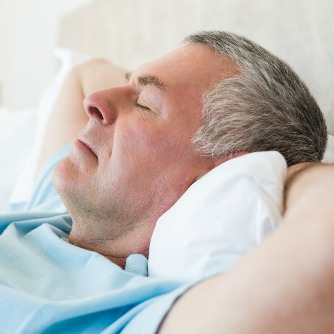WHY AGE WE SLEEPING LESS?
Supplements to promote sleep

Over the years many men and women reduce their hours of sleep, getting to sleep, on average, an hour and a half less than they did in 20 years. Upon awakening, they are often not well rested, and are tired during the day.
Clifford Saper from Beth Israel Deaconess Medical Center (Massachusetts, USA) and colleagues have identified in a laboratory animal model that a specific cluster of neurons are associated with the regulation of sleep - the ventrolateral preoptic nucleus, which seems to be reduced slowly when aging; as a result of this change, biological, may develop insomnia.
The researchers then evaluated a data set of nearly 1000 subjects (age at death 89.2 years, of which 71% were female, 12% with Alzheimer's disease) enrolled in the Rush Memory and Aging Project.
Of these study participants, the team examined 45 brains, to assess whether the ventrolateral preoptic nucleus was still intact. The researchers found that fewer of these neurons had more sleep was fragmented and irregular in person last year of life. Cervelli with the largest amount of neurons (more than 6,000) belonged to people with longer, uninterrupted sleep.
The researchers also found that the link between a smaller number of neurons and less sleep was even more evident in people who had died with Alzheimer's disease. The authors of the study say finally: "The scarcity of neurons in the intermediate nucleus is accompanied by sleep fragmentation in the elderly without Alzheimer's disease and even more so if burdened by this disease."
Source: Worldhealth
Supplements to promote sleep
